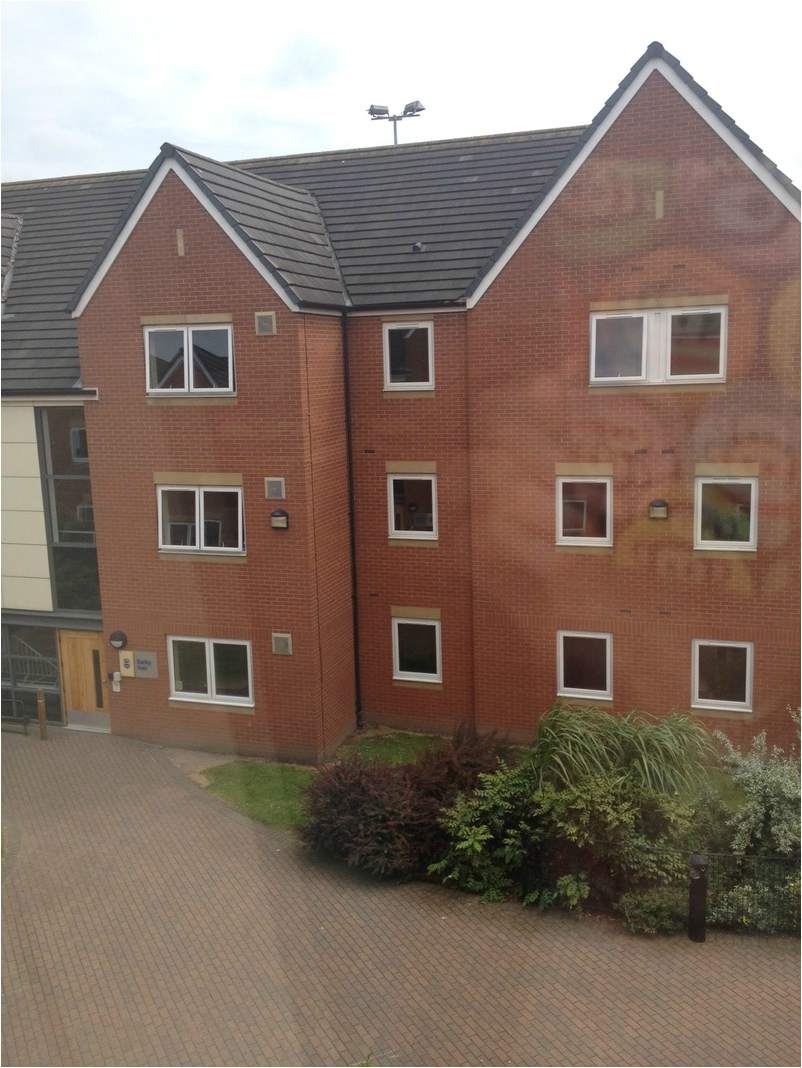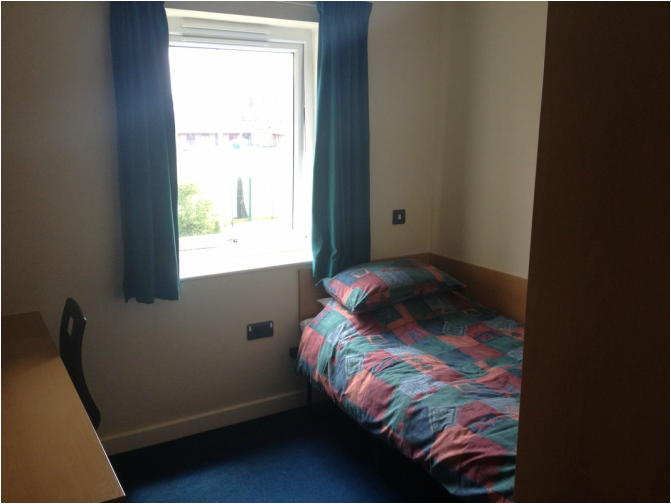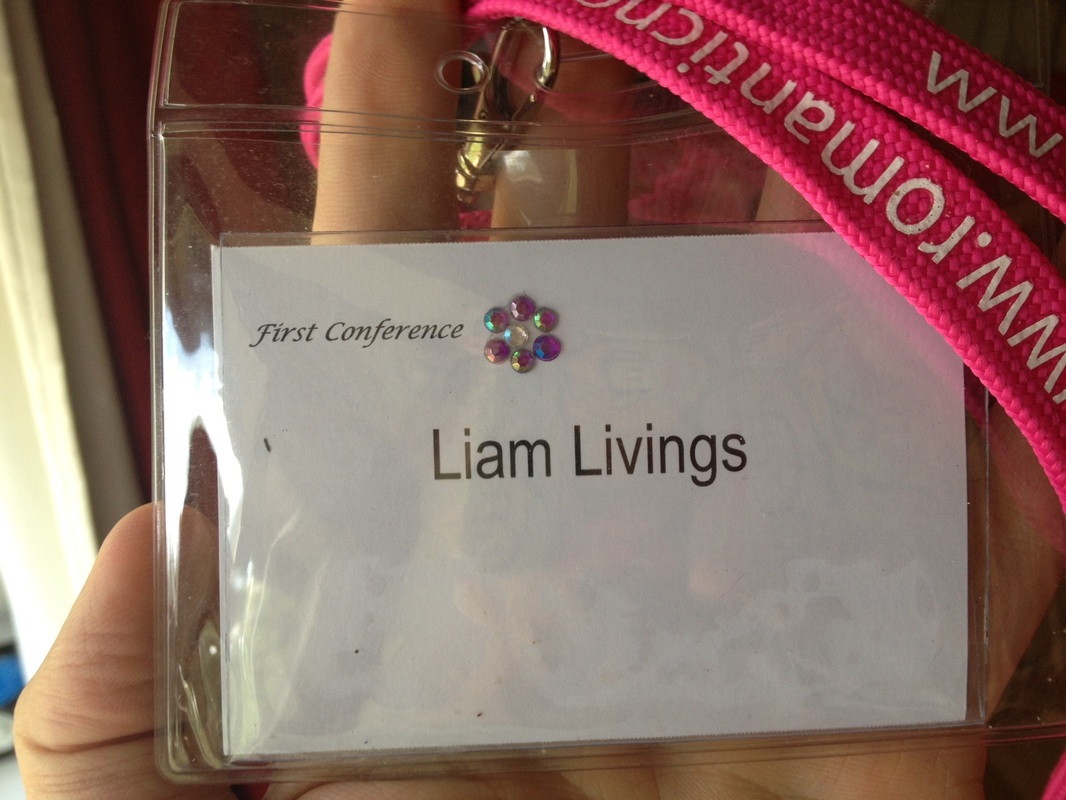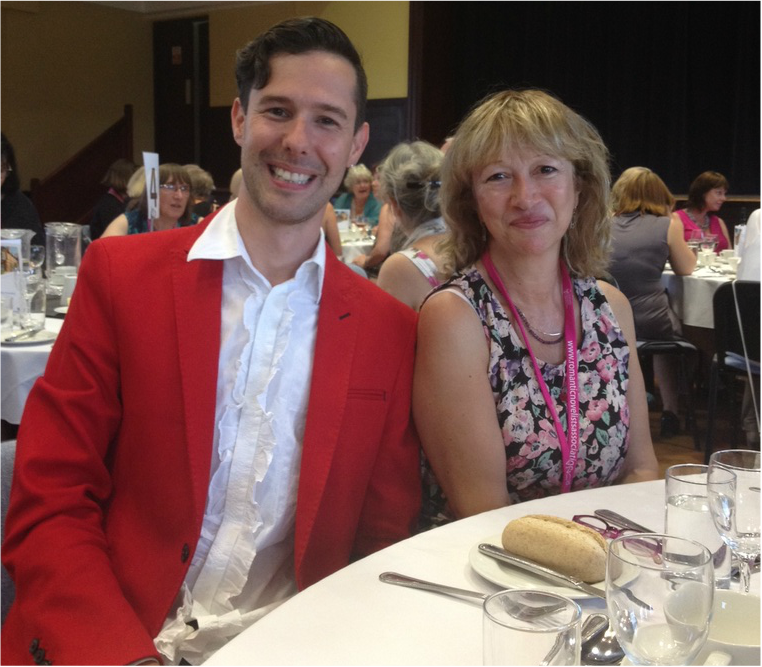During the week before I’d watched a Channel 4 documentary called The Secret Life Of Students, and it followed three students in their first term at uni in Leicester. It included on-screen messages the students were sharing with their friends through their phones. They asked their friends back home which drinking games to play. They told friends they felt lonely and hadn’t met anyone they clicked with, in real time during the doc.
Going to my first RNA conference felt like this first week at uni once again. I stayed in halls of residence. The sessions were given in lecture theatres, food was served in a canteen.
I know how much time and effort goes into making an event like that appear to happen effortlessly, having been on the UK Meet organising team since 2013. Nothing is effortless, it’s all planned very carefully. The RNA Conference was smooth, professional and friendly.
I had a little sparkly flower on my badge that proclaimed it was my first conference. Jan Jones pointed this out and asked others to make sure we newbies felt included and didn’t look lost. I can honestly say, there wasn’t one single moment at the conference I felt unincluded, or lost. I didn’t just talk the hind legs off a donkey, I talked and laughed all four legs off a herd of donkeys with fellow authors for the whole three days. And it was fabulous.
- Number of panels and workshops attended – 15
- Number of amazing free range, organic, home grown meals eaten – 6
- Number of jackets brought and worn – 2 (one bright red, and one pale blue)
- Number of old friends chatted to – approx 7
- Number of new friends chatted to – too many to count
- Number of people the bed in my room could sleep – 1
- Number of books brought back from the conference - 9
- Number of ‘aah yes, I do that too’ moments shared with other authors – too many to count
- Number of words added to my WIP Glitzy Gay Saga – 5000 (I am a geek and needed to leave the social side for the quiet of my room sometimes and so took this opportunity to write.)
- Number of episodes of Gilmore girls watched in my room – 2 (gotta love a trip to Stars Hollow)
- Number of emails that came through on my phone using Harper Adams University’s wifi – 0
- Number of emails that came through once I arrived at Stafford station – 49
I heard from Tali Roland and Nick Spalding about the benefits and disadvantages of self-publishing. When someone says ‘I’m not technical and I could do it’ it always fills me with hope. Tali said this so I’ll definitely look into self-pubbing in the future.
Saturday
Nikki Logan gave a fascinating talk about the chemistry of reading. 90mins in a few sentences: the human brain responds in a basic lizard brain way to stimuli by releasing tiny amounts of chemicals into the body. Stories that provoke this reaction in readers will give them the warm fuzzy glow of falling in love, of meeting a new best friend, the endurance feel of having to get to the next page, the pit of the stomach feel of it all going horribly wrong. Nikki gave some great tips of how to write great stories so readers experience the story at a chemical level.
We heard from Waterstones and WH Smith Travel about how they choose which books get into their shops. There was an interesting debate about the different ways readers can buy books, and how they each offered something special to differentiate them:
- Independent book stores – personal service, ordering in unusual titles
- Supermarkets – price advantage and convenience – who doesn’t want to pick up a book to read while they’re buying dinner?
- Airports and other travel hubs – clearly curated to make a buying decision very easy in a stressful environment.
I made a point that in an age where you can buy any book with a click of an app on your phone, all book shops need to offer some form of specific differentiation to persuade buyers to buy with them. The danger with trying to be everything to everyone is that you do a Woolworths *agast silence*
A great panel discussion about the future of romantic fiction and the role of the RNA. I think membership organisations like the RNA are invaluable to represent their members’ views, connect members and help them learn from one another. Although there are issues the RNA could comment on publically about the industry, lobbying is a specific skill set requiring a lot of time and one that may not be achievable for an organisation staffed by volunteers with day jobs and writing careers.
Alison Sherlock started her talk by saying she was nervous of talking in public. She didn’t come across this way at all. She was very natural, engaging and told theh compelling story of how she’d used her real life experience of trying to get published to write a number of not published romantic fiction books. ‘Find your writing voice and stick with it.’ ‘Write from your heart.’
Philippa Ashley and Nell Dixon gave a very useful talk about the difference between a series and linked books, and the advantages and disadvantages of writing them. I’m thinking about making some of my stand alone stories into series and the savings in not having to rebuild the world and characters must be weighed up with the need for very strict with the timeline and consistency.
Jane Lovering – in a penguin onesie - and Rhoda Baxter gave an amusing and informative session about writing funny. ‘Juxtaposition of thingy’ summed that up nicely. Giving a talk isn’t funny. Giving a talk wearing a onesie is funny. ‘The characters don’t know they’re in a romcom book.’ Some felt it ok to have humour in sex scenes, others didn’t. Jane’s quote of the session, and in my view, the whole conference was about the explicitness of sex scenes: ‘Some people have the full pink bits hitting other pink bits.’
Janet Gover talked about the importance of setting. How settings can be a character in the story, how it can reveal strengths and weaknesses of the characters, how to use the internet (not social media, sorry) to research settings the writer hasn’t experienced but wants to use in a story. It’s given me loads of tips to make my WIP Glitzy Gay Saga much more *glitzy* in its locations than it currently is.
Kate Long gave us seventeen questions to ask of one of our characters and I found out so much about one of my characters in And Then That Happened. I will be using that list of questions, and the others we added as a group, when developing my characters in future.
Jean Fullerton used Pride and Prejudice to illustrate how a story should be structured and what to do at each of the stages. It wasn’t a ‘to plan or not to plan’ debate, instead focused on how the action should build, when to introduce which characters, what to do with back story and most importantly how ‘every scene should lead the reader through the story.’ So no ‘it’s a lovely scene let’s keep it’ *rolls eyes* cos I’ve never written any of those, honest...
There was a rough approximation of Kath and Kim’s Wine Time as the last session, including stories of spilt wine and white shirted men, rutting horses, chickens escaping from paper bags, and incontinent cats en-route to the vets. And that was how it ended.
On the train home I re-read my story, And Then That Happened for cover ideas to share with the cover designer. I wrote it in 2012 so needed to remind myself with what it’s about.
The BF and cat greeted me at home, we watched Titanic – and even hearing the ‘my heart will go on’ music started me to well up with tears. I know, it’s shameful isn’t it?
If you enjoyed reading this, you might like some of my books which are – just as I am – borderline shy/wild, serious/funny, colourful/camp with a healthy dose of romance humour and friendship.
Until next time,
Liam Livings xx




 RSS Feed
RSS Feed
